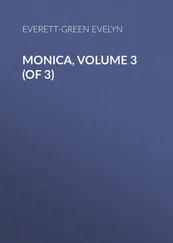Friedrich Max Müller - Chips from a German Workshop, Volume 1
Здесь есть возможность читать онлайн «Friedrich Max Müller - Chips from a German Workshop, Volume 1» — ознакомительный отрывок электронной книги совершенно бесплатно, а после прочтения отрывка купить полную версию. В некоторых случаях можно слушать аудио, скачать через торрент в формате fb2 и присутствует краткое содержание. Жанр: foreign_prose, foreign_antique, на английском языке. Описание произведения, (предисловие) а так же отзывы посетителей доступны на портале библиотеки ЛибКат.
- Название:Chips from a German Workshop, Volume 1
- Автор:
- Жанр:
- Год:неизвестен
- ISBN:нет данных
- Рейтинг книги:3 / 5. Голосов: 1
-
Избранное:Добавить в избранное
- Отзывы:
-
Ваша оценка:
- 60
- 1
- 2
- 3
- 4
- 5
Chips from a German Workshop, Volume 1: краткое содержание, описание и аннотация
Предлагаем к чтению аннотацию, описание, краткое содержание или предисловие (зависит от того, что написал сам автор книги «Chips from a German Workshop, Volume 1»). Если вы не нашли необходимую информацию о книге — напишите в комментариях, мы постараемся отыскать её.
Chips from a German Workshop, Volume 1 — читать онлайн ознакомительный отрывок
Ниже представлен текст книги, разбитый по страницам. Система сохранения места последней прочитанной страницы, позволяет с удобством читать онлайн бесплатно книгу «Chips from a German Workshop, Volume 1», без необходимости каждый раз заново искать на чём Вы остановились. Поставьте закладку, и сможете в любой момент перейти на страницу, на которой закончили чтение.
Интервал:
Закладка:
Much in the chronological arrangement of the three periods of Vedic literature that are supposed to have followed the period of the original growth of the hymns, must of necessity be hypothetical, and has been put forward rather to invite than to silence criticism. In order to discover truth, we must be truthful ourselves, and must welcome those who point out our errors as heartily as those who approve and confirm our discoveries. What seems, however, to speak strongly in favour of the historical character of the three periods of Vedic literature is the uniformity of style which marks the productions of each. In modern literature we find, at one and the same time, different styles of prose and poetry cultivated by one and the same author. A Goethe writes tragedy, comedy, satire, lyrical poetry, and scientific prose; but we find nothing like this in primitive literature. The individual is there much less prominent, and the poet's character disappears in the general character of the layer of literature to which he belongs. It is the discovery of such large layers of literature following each other in regular succession which inspires the critical historian with confidence in the truly historical character of the successive literary productions of ancient India. As in Greece there is an epic age of literature, where we should look in vain for prose or dramatic poetry; as in that country we never meet with real elegiac poetry before the end of the eighth century, nor with iambics before the same date; as even in more modern times rhymed heroic poetry appears in England with the Norman conquest, and in Germany the Minnesänger rise and set with the Swabian dynasty—so, only in a much more decided manner, we see in the ancient and spontaneous literature of India, an age of poets followed by an age of collectors and imitators, that age to be succeeded by an age of theological prose writers, and this last by an age of writers of scientific manuals. New wants produced new supplies, and nothing sprang up or was allowed to live, in prose or poetry, except what was really wanted. If the works of poets, collectors, imitators, theologians, and teachers were all mixed up together—if the Brâhma n as quoted the Sûtras, and the hymns alluded to the Brâhma n as—an historical restoration of the Vedic literature of India would be almost an impossibility. We should suspect artificial influences, and look with small confidence on the historical character of such a literary agglomerate. But he who would question the antiquity of the Veda must explain how the layers of literature were formed that are super-imposed over the original stratum of the poetry of the Rishis; he who would suspect a literary forgery must show how, when, and for what purpose the 1000 hymns of the Rig-veda could have been forged, and have become the basis of the religious, moral, political, and literary life of the ancient inhabitants of India.
The idea of revelation, and I mean more particularly book-revelation, is not a modern idea, nor is it an idea peculiar to Christianity. Though we look for it in vain in the literature of Greece and Rome, we find the literature of India saturated with this idea from beginning to end. In no country, I believe, has the theory of revelation been so minutely elaborated as in India. The name for revelation in Sanskrit is S ruti, which means hearing; and this title distinguishes the Vedic hymns and, at a later time, the Brâhma n as also, from all other works, which, however sacred, and authoritative to the Hindu mind, are admitted to have been composed by human authors. The Laws of Manu, for instance, according to the Brahmanic theology, are not revelation; they are not S ruti, but only Sm r iti, which means recollection or tradition. If these laws or any other work of authority can be proved on any point to be at variance with a single passage of the Veda, their authority is at once overruled. According to the orthodox views of Indian theologians, not a single line of the Veda was the work of human authors. The whole Veda is in some way or other the work of the Deity; and even those who received the revelation, or, as they express it, those who saw it, were not supposed to be ordinary mortals, but beings raised above the level of common humanity, and less liable therefore to error in the reception of revealed truth. The views entertained of revelation by the orthodox theologians of India are far more minute and elaborate than those of the most extreme advocates of verbal inspiration in Europe. The human element, called paurusheyatva in Sanskrit, is driven out of every corner or hiding-place, and as the Veda is held to have existed in the mind of the Deity before the beginning of time, every allusion to historical events, of which there are not a few, is explained away with a zeal and ingenuity worthy of a better cause.
But let me state at once that there is nothing in the hymns themselves to warrant such extravagant theories. In many a hymn the author says plainly that he or his friends made it to please the gods; that he made it, as a carpenter makes a chariot (Rv. I. 130, 6; V. 2, 11), or like a beautiful vesture (Rv. V. 29, 15); that he fashioned it in his heart and kept it in his mind (Rv. I. 171, 2); that he expects, as his reward, the favour of the god whom he celebrates (Rv. IV. 6, 21). But though the poets of the Veda know nothing of the artificial theories of verbal inspiration, they were not altogether unconscious of higher influences: nay, they speak of their hymns as god-given ('devattam,' Rv. III. 37, 4). One poets says (Rv. VI. 47, 10): 'O god (Indra) have mercy, give me my daily bread! Sharpen my mind, like the edge of iron. Whatever I now may utter, longing for thee, do thou accept it; make me possessed of God!' Another utters for the first time the famous hymn, the Gâyatrî, which now for more than three thousand years has been the daily prayer of every Brahman, and is still repeated every morning by millions of pious worshippers: 'Let us meditate on the adorable light of the divine Creator: may he rouse our minds.' 14 14 'Tat Savitur vare n yam bhargo devasya dhîmahi, dhiyo yo na h pra k odayât.'—Colebrooke, 'Miscellaneous Essays,' i. 30. Many passages bearing on this subject have been collected by Dr. Muir in the third volume of his 'Sanskrit Texts,' p. 114 seq.
This consciousness of higher influences, or of divine help in those who uttered for the first time the simple words of prayer, praise, and thanksgiving, is very different, however, from the artificial theories of verbal inspiration which we find in the later theological writings; it is indeed but another expression of that deepfelt dependence on the Deity, of that surrender and denial of all that seems to be self, which was felt more or less by every nation, but by none, I believe, more strongly, more constantly, than by the Indian. "It is He that has made it,"—namely, the prayer in which the soul of the poet has thrown off her burden,—is but a variation of, "It is He that has made us," which is the key-note of all religion, whether ancient or modern, whether natural or revealed.
I must say no more to-night of what the Veda is, for I am very anxious to explain to you, as far as it is possible, what I consider to be the real importance of the Veda to the student of history, to the student of religion, to the student of mankind.
In the study of mankind there can hardly be a subject more deeply interesting than the study of the different forms of religion; and much as I value the Science of Language for the aid which it lends us in unraveling some of the most complicated tissues of the human intellect, I confess that to my mind there is no study more absorbing than that of the Religions of the World,—the study, if I may so call it, of the various languages in which man has spoken to his Maker, and of that language in which his Maker "at sundry times and in divers manners" spake to man.
Читать дальшеИнтервал:
Закладка:
Похожие книги на «Chips from a German Workshop, Volume 1»
Представляем Вашему вниманию похожие книги на «Chips from a German Workshop, Volume 1» списком для выбора. Мы отобрали схожую по названию и смыслу литературу в надежде предоставить читателям больше вариантов отыскать новые, интересные, ещё непрочитанные произведения.
Обсуждение, отзывы о книге «Chips from a German Workshop, Volume 1» и просто собственные мнения читателей. Оставьте ваши комментарии, напишите, что Вы думаете о произведении, его смысле или главных героях. Укажите что конкретно понравилось, а что нет, и почему Вы так считаете.












